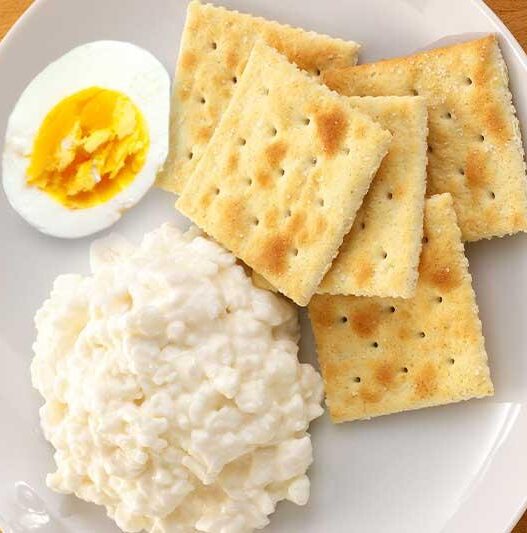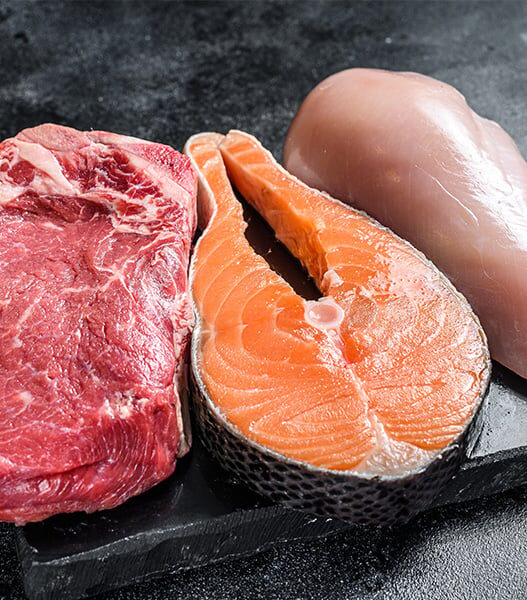Purposefully, choose those habits that are not only suitable to your food and nutrition, but also your physical and mental health.
Most people believe weight management is just a numbers game. You can count the calories that you consume, without any effort ,you hope that they come out just as quickly. So, how to lose 10 pounds quickly?
But the truth is different and shows that weight management and weight loss are more effective and efficient when you’re vigorously adopting healthy habits in the territory of food, fitness, mental health and physical activity.
And when you’re centered basically on health and wellness, it becomes notable that what your body needs to thrive, surviving and staying alive is more important than just counting calories.
No matter if you’re trying to lose weight for the very first time, looking for ways that help you to avoid overeating or just trying to dig a little deeper after standing up against a plateau, our specialists provide seven suggestions for dropping your 10 pounds in a healthier way.
Eat When You’re Hungry
“Listening to your hunger works much better than relying on your willpower,” it was said by registered dietitian Kayla Kopp, RD, LD.
When you’re persuaded to overeat, have a discussion with yourself ,and ask yourself
“Are you feeling hungry, are you tired or are you feeling sad? Will eating this time draw you closer to your fitness goal?”
Kopp(dietitian) advised to picture a “hunger scale” marked from 1 to 10, with one being hungry and ten being so full that you can’t imagine eating another bite.
You never want to be at either of the far ends of the hunger scale, she said. Always ask yourself to be somewhere between a 4, 5 or 6.
And the fact is you can’t even yet break away from less than stellar food choices, listening to your hunger can help you lose weight in a passive way.
Be Mindful Of How And When You Eat
“Being mindful of what you eat makes you more conscious of your choices, eliminating the ‘oops-did-I-eat-that-whole-bowl?’ behaviors,” says psychologist Susan Albers, PsyD.
Do you like to pour cereal straight from the box into your bowl?
“You wind up with two to three servings and two to three times the number of calories,” adds Kopp.
Instead of this, measure out one pouring serving at a time. You can search out the serving size on the nutrition label.
“It sounds simple, but taking a minute to read the label will make a huge difference in your choices,” says Dr. Albers.
Another tactic is “front-loading”your calories.
“Try to eat most of your daily calories before sitting down to relax for the night,” advises Kopp.
Most people have a tendency to overeat without thinking about calories and their health while watching TV after having the proper meal, and then tend to forget just how much they’ve had before calling it a night.
Choose Water Over Sugary Drinks
It’s simple to overlook the calories that come from drinks.
“Think about food as fuel for your body, and then look at the places where you don’t really need extra calories,” recommends Kopp.
Ask yourself if you really want that glass of drink every night, or just trying to cut back on sodas and other sugary drinks?
Reduction or elimination of sugary and high-calorie sodas, juices, sweet tea and milkshakes can make a real changes in your weight.
Additionally, water is that one beverage that will actually help you in losing weight while keeping you hydrated.
And you know what?
Hydration is a key to weight management.
“Sometimes we respond to thirst signals by eating — when actually what our bodies want is water,” explains Dr. Albers.
It’s very easy to confuse our thirst and hunger signals, or to override out thirst signals.
If you’re doubtful about whether you’re overriding your signals, try to drinke some water before eating. Drinking water helps you feel fuller and changes your makes your mind able to think that you’re not that much hungry anymore.
“Studies have shown that when people drink water before they eat, they eat less during a meal,” shares Dr. Albers.
Being fully hydrated helps you with digestion, nutrient absorption, regulating your appetite hormones and also helps in reducing the inflammation. All of these are the key for being able to hear your hunger and eat in a mindful and healthy way.
Choose Foods That Make You Full, Not Hungry
Reduction or elimination of processed foods like bakery items including cookies, baked goods, junk food and high-fat foods like cheese, processed food or anything fried will move you closer to your goal weight.
“Processed and fast foods contain enhanced ingredients that hit the dopamine center in your brain and make you want more,” explains Dr. Albers. “They are designed to be addictive to the brain.”
The way to overcome this problem is shift your focus instead to nutrient-dense foods that are rich in protein and fiber.
Both these predictions keep your digestive tract active but also provide additional energy and boost your mood.
Dr. Albers points out that once you return to whole foods, not only will they taste better, but your body also picks them up more efficiently and naturally.
You can increase your protein intake with poultry, lean cuts of red meat/pork, dairy products, and/or beans,” Kopp says. “To increase your fiber content, which is good for your digestive system and will help you feel fuller, add non-starchy vegetables and/or a small salad to lunch or dinner, or both.”
Burn More Calories Through Exercise
When discussing weight loss exercises , the idea is that you want to try and burn off more calories than you consume on a daily basis.
If you’re not doing any physical activity and want to lose 30-plus pounds, then increasing your physical activity will help. This can be of any kind i.e. walk,cardio , strength training etc.
“Working up to 30 minutes of moderate-intensity cardiovascular exercise at least five days a week is generally a good starting place because it’s good for your heart,” says exercise physiologist Katie Lawton, MEd. “But it won’t always produce weight loss. Sometimes, you need to exercise more.”
Put Your Stress To Bed
Getting proper sleep is a key to weight loss. The reason behind is, fatigue increases your appetite as the level of hunger hormone rises.
“No one can make mindful food choices when they’re tired. Even missing an hour of sleep can increase your appetite because your body is craving that energy and food is fuel for your body,” says Dr. Albers. “You need a clear, focused head to make healthier food choices.”
Your stress level is also important to note. Dr. Albers notes that 75% of eating is mostly triggered by emotions rather than by hunger.
“Many people have lost weight simply by reducing their stress levels and finding ways to soothe themselves without food,” she adds. “If someone’s stress level is high, stress management techniques are key and a necessary first step before they change anything in their diet.”
Consult An Expert When You Hit A Plateau
“When you get on the treadmill every day and your body becomes more efficient, the exercise becomes easier to do and you need to take it up a notch. This efficiency argument applies to your diet as well,” says Kopp.
That happens when a registered dietitian, physician or exercise physiologist can help you in figuring out the further steps, how to move up the difficulty of your exercises and ideas you can continue to push yourself beyond where you are right now.
“We all hit a plateau when we need to do something more aggressive beyond just cutting more calories,” says Kopp. “A professional may have some other ideas and can help you level up along the way.”

















